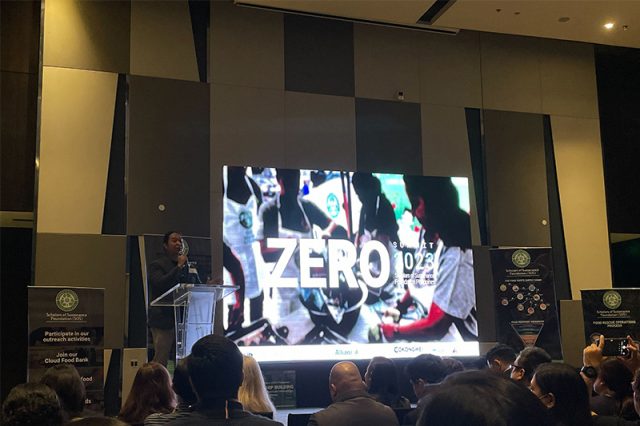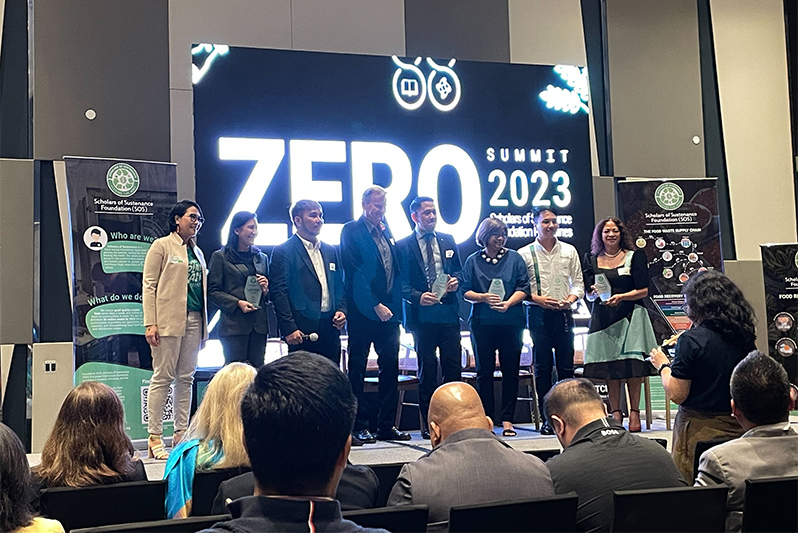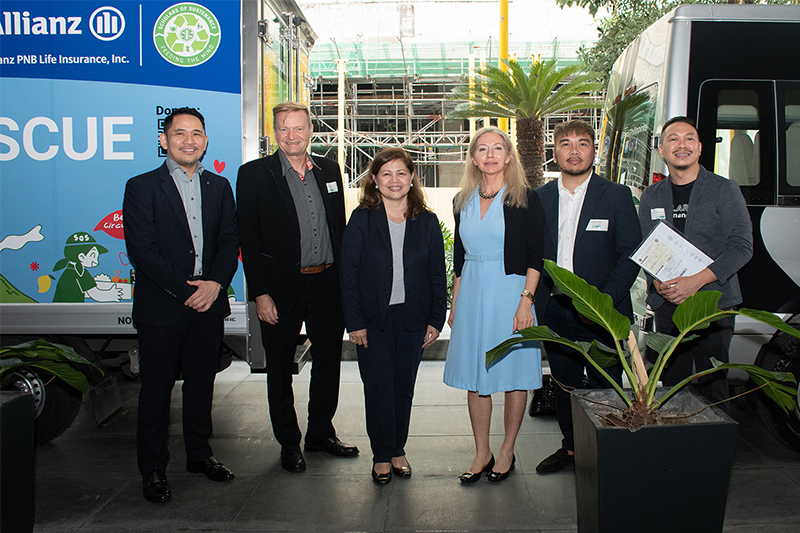
(Updated Aug. 11, 2023; 12:14 p.m.) Several food industry leaders and sustainability advocates convened on Tuesday at the first zero waste summit in the Philippines to promote local efforts reducing food waste and food insecurity.
Organized by the Scholars of Sustenance (SOS), a global food rescue foundation, Zero Summit Philippines will become an annual convention committed to gathering members of the academe, government, civil society and business sector interested in collaborative initiatives that combat food wastage in the country.
Filipinos waste approximately 1.72 billion kilograms of food everyday, according to the Food and Nutrition Research Institute of the Department of Science and Technology. Food often wasted in the country are rice, vegetables and meat.
While much food is wasted, millions of Filipinos face moderate to severe food insecurity. From 2020 to 2022, the United Nations found that about 50.9 million Filipinos experienced this phenomenon due to high costs of food.
SOS chief executive officer and founder Bo Holmgreen emphasized that the data is telling of how vital partnering with multi-sectoral stakeholders is in strengthening efforts that save excess food from wastage. Food waste is usually collected from retail, hospitality, manufacturing and food and beverage industries.
“So the next big thing is to get the sponsors, the corporations, the embassies and all the people who can actually have an impact on the growth [of the initiative],” he told Interaksyon.
“Because from America, we can only give so much in seed money. But after a while, we need the organizations to be self-sustainable so they can grow fast,” he added.
The fruits of collaborative labor
As of June 2023, SOS Philippines has redistributed about 148,728 kgs of surplus food to marginalized communities in Manila since October 2022. This is equivalent to 625,300 meals served to vulnerable Filipinos.
Instead of ending up in landfills and contributing to an increase in greenhouse gasses, the food rescued from hotels and restaurants has stopped 363,852 kgs of carbon dioxide from being produced.
The food rescue foundation has partnered with the Quezon City government, Gokongwei Group, Allianz Philippine National Bank (PNB) Life Insurances, Mayani, Ford Motor Company, FoodPanda, Century Pacific and Project Pearls.

These institutions and organizations said in the panel discussion on Tuesday that partnering with SOS allows them to reach a wider network of operations and help provide food for those in poverty.
“We are partnering with SOS because of that scale,” Yvonne Flores, Gokongwei Group’s head of sustainability and CSR, said. “If we did it by ourselves, we wouldn’t have that impact.”
The Gokongwei Group has been donating surplus food for redistribution to SOS Philippines. Among its brands are Robinsons Retail Holdings Inc. and Universal Robina Corporation. Mayani, on the other hand, provides unsold fruits and vegetables that directly come from farmers.
Allianz PNB Life and Ford also sponsored a food truck and a transit van to assist the food rescue foundation in their collection and distribution of excess food.

Ensuring food safety and security
Although SOS Philippines has already established several partners in the country, it is still in need of logistical support, Holmgreen said.
“So we need more trucks, more staff, more food and just getting it to as many people as possible because we only measure the impact in tens of thousands of people,” he added.
At the moment, the foundation only has one cooling truck which allows their staff to collect perishable food like cooked leftovers and safely deliver them to beneficiaries on the same day.
When collecting about 20 to 100 kgs of cooked food a day from a hotel, Holmgreen said SOS has to immediately transport them to the recipients or else food will go to waste. The donated food trucks and vans will be used for non-perishables like boxed food.
“So the cold chain technology, the truck and or freezers in our head office, is key to getting food out there safely. But the purpose of food rescue is to get it through the same day because some of these foods will actually be given to us one or two days before exploration and we cannot wait,” he explained.
The CEO emphasized that food surplus should not only be distributed to the vulnerable, it should also be examined for food safety before anything else.
When asked where SOS will be headed next, Holmgreen said Cebu will be among their next stops because of the hundreds of hotels in the city. They will also be considering tourism centers and food manufacturers located outside of Manila to collaborate with.
Seeing that food insecurity is not a result of food scarcity, SOS continues to influence institutions and organizations into understanding that the real problem lies in the unequal distribution of food. They point out that the solution is in redistributing food surplus while reducing it simultaneously and promoting collaboration among all sectors.
